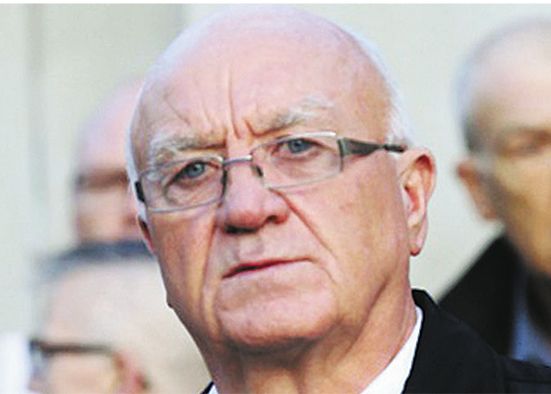High Court judge rules Legacy Act in breach of human rights
High Court judge rules Legacy Act in breach of human rights
6 March 2024

A MAN who survived a Loyalist gun attack on a Kilcoo pub in 1992 was at the High Court in Belfast last week to hear that conditional immunity from prosecutions for Troubles-era crimes contained in the controversial Legacy Act is in breach of the European Convention on Human Rights.
Mr John McEvoy is one of four opponents who legally challenged the UK government legislation.
The opponents brought the legal challenge on several grounds, including the immunity aspect, which was passed by Parliament in September.
Mr McEvoy was seriously injured in a terrorist attack at the Thierafurth Inn in November 1992 which claimed the life of 42 year-old Peter McCormack.
He was one of three people seriously wounded when the terror gang burst into the rural pub and opened fire during a darts tournament.
The shooting has been linked to members of the same loyalist gang believed to be responsible for the massacre of six innocent Catholic men at The Heights Bar in Loughinisland in June 1994 as they watched a World Cup match on television.
Mr McEvoy is one of 19 people who lodged applications with the High Court in Belfast to challenge the British government’s legacy legislation which has been branded the ‘Bill of Shame’ by opponents.
The Act, which came into effect in September, was designed to end future civil litigation and inquests into deaths which occurred during the Troubles.
Last week, Mr Justice Colton ruled “there is no evidence that the granting of immunity under the act will in any way contribute to reconciliation in Northern Ireland, indeed the evidence is to the contrary”.
The Act involves a conditional amnesty for people suspected of crimes committed during the Troubles and introduces a ban on inquests and future civil actions related to this part of Northern Ireland’s history.
The government has argued the act is human rights compliant, but Mr McEvoy and the others who brought the action disagree.
They claimed the legislation was unconstitutional and breached articles two and three of the European Convention on Human Rights (ECHR).
Delivering his ruling, Mr Justice Colton said he was “satisfied that the immunity from prosecution provisions under section 19 of the act are in breach of the lead applicant’s rights pursuant to article 2 of the ECHR.
“I am also satisfied they are in breach of article 3 of the ECHR,” he continued.
Last week’s ruling came after the court heard eight days of argument in the autumn.
Despite the ruling about the immunity clause, the judge said he was satisfied the Independent Commission for Reconciliation and Information (ICRIR), could carry out human rights compliant investigations.
Mr Justice Colton told the court he fully understood the opposition to the new scheme and the reasons for it.
But he said he could not at this point say that the ICRIR could not provide investigations in line with article two and article three of the ECHR.
He added: “It has wide powers and wide range of discretion to carry out its reviews. Should it fall short of its obligations on articles two and three, I have no doubt they will be subject to the scrutiny of the court.”
An ICRIR spokesperson said it would study the court’s ruling in detail.
Secretary of State Chris Heaton-Harris said the government would “take some time to consider” the ruling and that he remained committed to implementing the Act.
He said it was a “complex case” that was likely to lead to further action in higher courts.
Shadow Secretary Hilary Benn questioned how the ICRIR, which was set up to probe Troubles-related killings, could proceed following the ruling.
Irish Tánaiste Micheál Martin said he was “not surprised” by the ruling and claimed it “reflects and underpins” the course of action which the Irish government has taken.
PSNI Chief Constable Jon Boutcher, said the voices of victims were not being “sufficiently heard” in the debate surrounding the bill.
Amnesty International’s Grainne Teggart welcomed the court’s findings, but said it was only “round one” and there were now “significant questions” for Mr Heaton-Harris.

